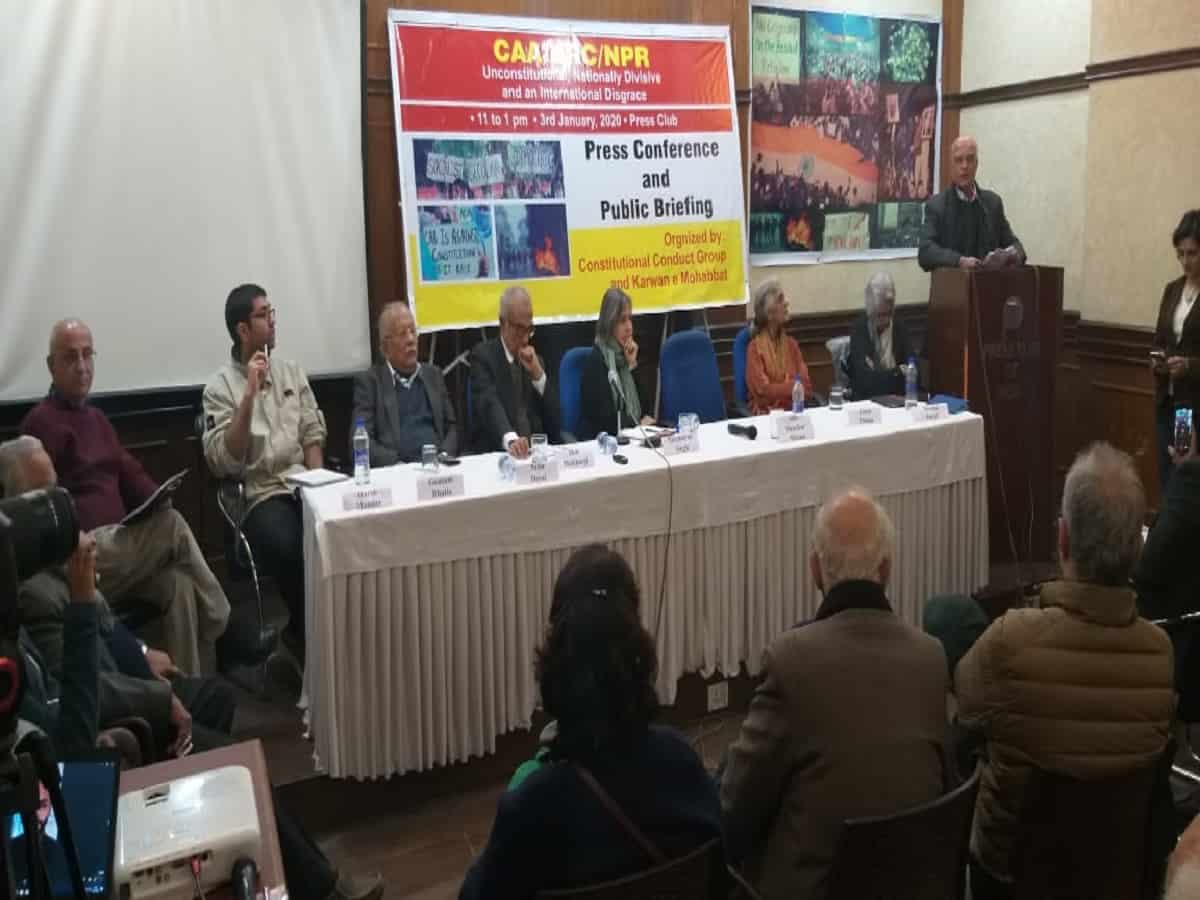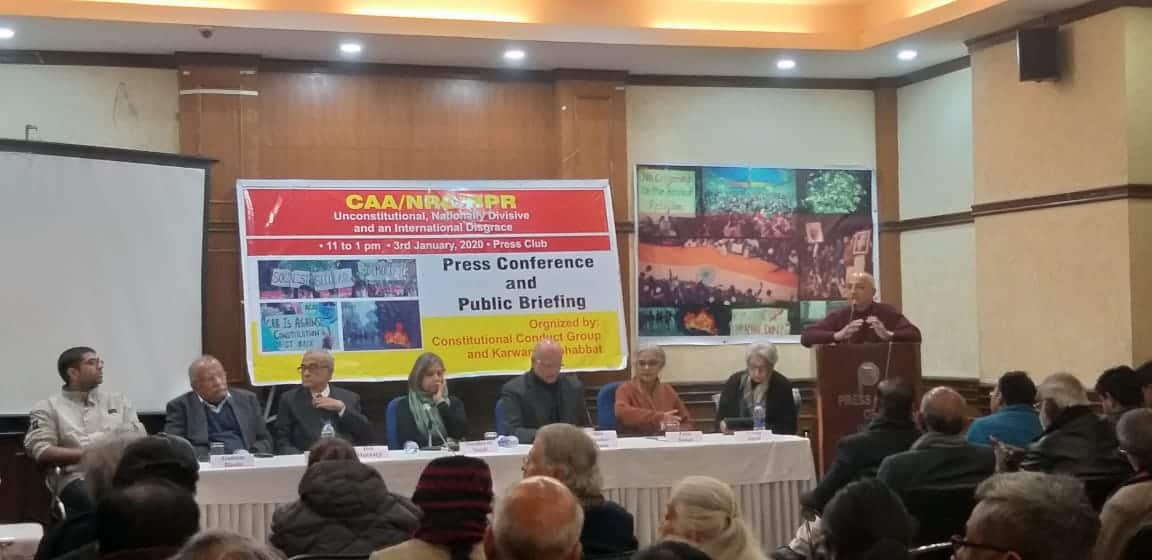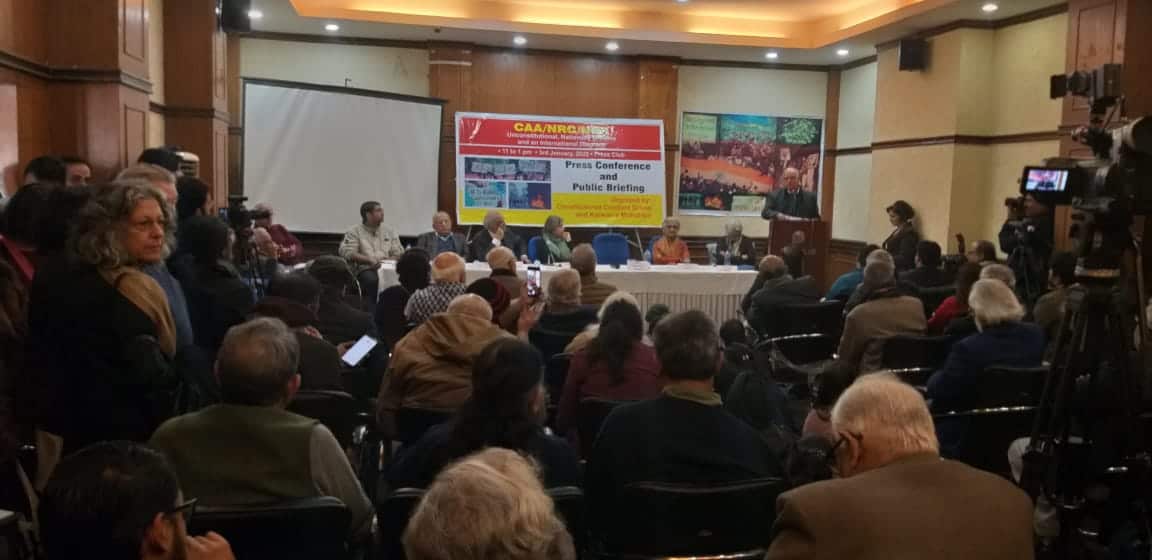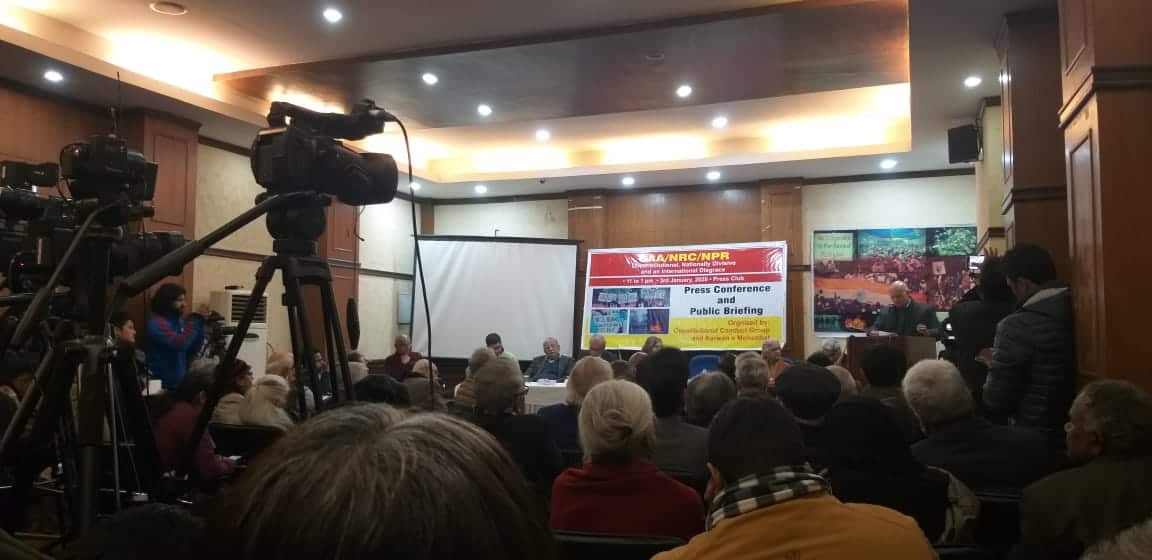New Delhi: Faizan Mustafah, vice-chancellor of NALSAR University of Law, Hyderabad.
- Gautam Bhatia: Gives a brief introduction about CAA and NRC; points out and I quote,“that why does the list of minorities include only those from Pakistan, Bangladesh and Afghanistan?”
- Zoya Hasan: She points out and I quote, “millions of Indians have to prove their Indian-ness,”; she explains the problematic nature of NRC and NPR and I quote her, “everybody gets a free pass except Muslims,”; discusses the point of this exercise (NRC and NPR) is not inclusion but exclusion; she further says that this exercise fails to make a meaningful categorization and the classification and exclusion of some countries and communities using religion is patently unjust; she questions the governance of BJP government of coming to the conclusion in 2019 that all non-Muslims were persecuted when they illegally entered India; Adityanath’s government said that his government will take ‘badla’; CAA will create polarization; she elucidates that this is not a fight for Muslims but for democracy and citizenship, and I quote her, “this is an ideological project – it redefines India as a Hindu-nation through the CAA.”
- Faizan Mustafah: Describes the differences between NPR and NRC; gives a legal analysis of NPR and I quote, “NPR, if it is a part of census, it should be under the census act… neither under the census act of 1948, nor under 1990 census rules, you’ll find the reference to NPR.”; he further points out that the 2020 NPR is asking questions that decline citizenship when it is talking about the parents date and place of birth; suggests the government of India to drop all such questions so that there is some calm and contentment in the country; reads out rules under different articles related to right to equality; ends his talk about the exclusion being problematic.
- Shiv Shankar Menon: He starts his discussion on the increasing isolation of India from the global world; he describes how Kashmir has been conversed about in international forums; he talks about violation of international human rights, civil and political rights and article 21 – respect all individuals; gives insight on the shift of global public opinion of India as posted by international media, to name a few, he says, the Wall Street Journal, the Guardian, etc.; he explains how his friends have taken a back – Bangladeshi Home Minister quoted in the paper, upon asking what he is going to do about NRC and CAA and threats of deportation to Bangladesh, he said, ‘let them fight amongst themselves.’; gives a description of Indian economy right now – investments have declined, ratings have declined, 7 countries have given travel warnings; he ends his talk about India’s dependence on external sector.
- Nitin Desai: He begins by saying that the government is trying to compromise India’s standing on a global perspective; he describes how citizenship is entitled to every individual in our country and is a central part of our democracy; addressing the government, he raises the question on how do we see people who live on the streets and do not have addresses; universal suffrage- creating a sense of political equality; sense of inclusiveness – bringing people together is the foundation of our constitution; he says, and I quote, “it is rather unusual to deny citizenship,”; discusses the right of people to live in a country where their parents have always lived; people have the right to seek asylum in other countries and addressing the government, he says, “how can you not handle people of your country?”
- Navsharan Singh: Starts her talk with CAA and NRC being a challenged thrown at Indian citizens; she claims that this was always the agenda of the BJP government and it shakes the foundation of the society and challenges the principal of fraternity; points out Indian refugee framework – India is neither party to the 1951 convention of the refugees nor the 1960’s protocols and does not maintain a national refugee law; in case of Afghan refugees, non-Muslim refugees (Sikhs) of Afghanistan, can rent homes, attend school, etc. and are eligible for immediate application, whereas, Muslim Afghan refugees go through a lot of hardship; India has been taking a less general position on refugees; she says, and I quote, “we all are seeking new ideas,” and asks the public about our refugee policies; she further reads out policies under international regime and mentions article 4.1 – everyone has the right to seek and enjoy in other countries asylum from persecution; mentions how India failed to upheld in 2018 to give asylum to civil Rohingyas; responsibility of the global community to give dignity to those who are forced to leave their home; provides data – 84% refugees are hosted by developing countries; she further elucidates how CAA does not reflect morality, it does not provide safety and dignity and does not support legal principal; ends her talk with discussing about India’s approach – “myopic and inward looking.”
- Deb Mukherji: Describes the several facets of the issue (CAA/NRC/NPR) – legal, academia, moral and socio-political; he adds that all this is extremely difficult with the degree of misinformation; he explains people’ tribunal on Assam and requests us to think what could happen; he further adds how human processes are involved in NRC that is forcing people to die in most unfortunate way; he says and I quote, “I cannot say that minorities in Bangladesh have not suffered,” and suggests everyone to forget the idea of Bangladeshis’ staying in India.
- Mohsin Alam Bhat: Argues the differences between NRC in Assam and rest of the country; he explains in detail, how all the residents of Assam had to submit the documents to the state which proved their citizenship; critics said how it was discriminatory; adds that it was a single step process that applied to the whole step; next, he discusses about NPR and Census. He explains in detail, the differences between NPR and census; elucidates about the provision of section 14A in 2003 was added; NPR is problematic as it discriminates and people can be targeted and victimized, especially the poor and minorities; he further elaborates how citizenship of an individual is left to the government to decide, who is a ‘doubtful citizen’, who does not seem to be an Indian citizen; he suggests that if a person is found to not own citizenship, a legal judicial process should be followed, if at all; he adds how this responsibility is in the hands of tehsildars of states and this is problematic, he says; he ends his talk and I quote, “NPR will lead to abuse of law and victimization of people.”
- Harsh Mander: He ends the press conference on a call to Indian citizens to start a civil-disobedience movement, while giving an example of Mahatma Gandhi; he also adds how Kerala has denied to carry out this process and refused to give state machineries and same should be done by rest of the states to abolish the act; the conference ends after a round of question and answers between the press and the jury, and between the public and the jury.




